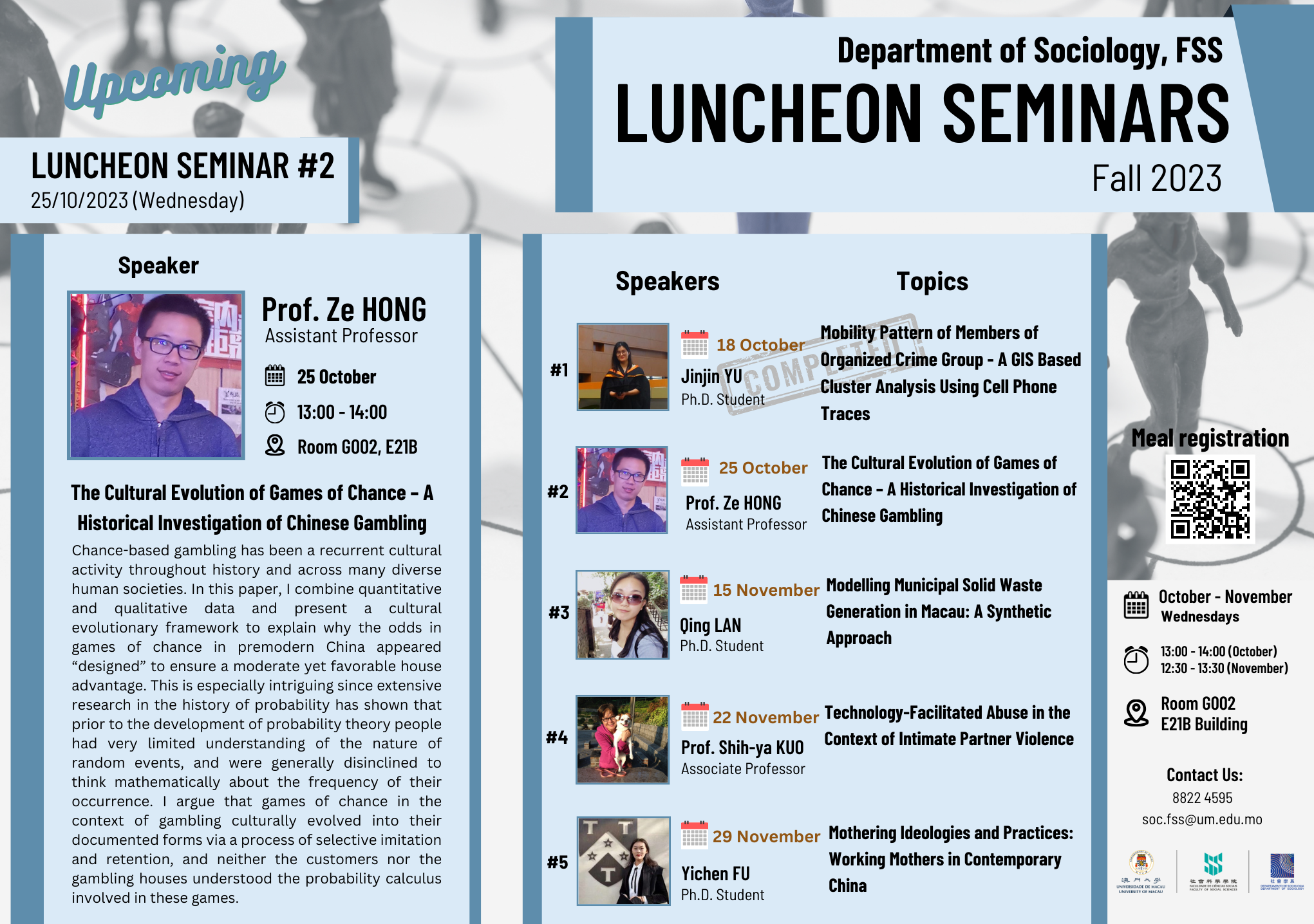
Date: October 25
Time: 1:00 pm – 2:00 pm
Speaker: Prof. Ze HONG
Venue: E21B-G002
Organizer: Department of Sociology
Phone: 8822 4595
Chance-based gambling has been a recurrent cultural activity throughout history and across many diverse human societies. In this paper, I combine quantitative and qualitative data and present a cultural evolutionary framework to explain why the odds in games of chance in premodern China appeared “designed” to ensure a moderate yet favorable house advantage. This is especially intriguing since extensive research in the history of probability has shown that prior to the development of probability theory people had very limited understanding of the nature of random events, and were generally disinclined to think mathematically about the frequency of their occurrence. I argue that games of chance in the context of gambling culturally evolved into their documented forms via a process of selective imitation and retention, and neither the customers nor the gambling houses understood the probability calculus involved in these games.
Kevin (Ze) Hong is a behavioral scientist who studies human behavior and culture from evolutionary and cognitive perspectives. He obtained a bachelor’s degree in Biology from Grinnell College, a master’s degree in Evolutionary Biology from the University of Pennsylvania, and a PhD in Human Evolutionary Biology from Harvard University. He worked as an assistant professor in the Department of Sociology at Zhejiang University and is currently an assistant professor in the Department of Sociology at the University of Macau and a research associate in the Department of Human Evolutionary Biology at Harvard University. Research-wise, He uses methodologically diverse approaches (e.g., theoretical modeling, quantitative analysis of historical data, ethnographic fieldwork) to study human behavior and culture from rainmaking to gambling, with special attention paid to information processing at the individual level and information transmission at the population level. His publication appears in diverse journal venues such as Current Anthropology, American Anthropologist, Behavior and Brain Sciences, Human Nature, Human Ecology, Religion, Brain & Behavior, Journal of Theoretical Biology, and Cognitive Science. His current field sites include the Yi in southwest China and the Wa in China-Burma border where he focuses on the psychological and social factors that sustain divination and magic practices.

